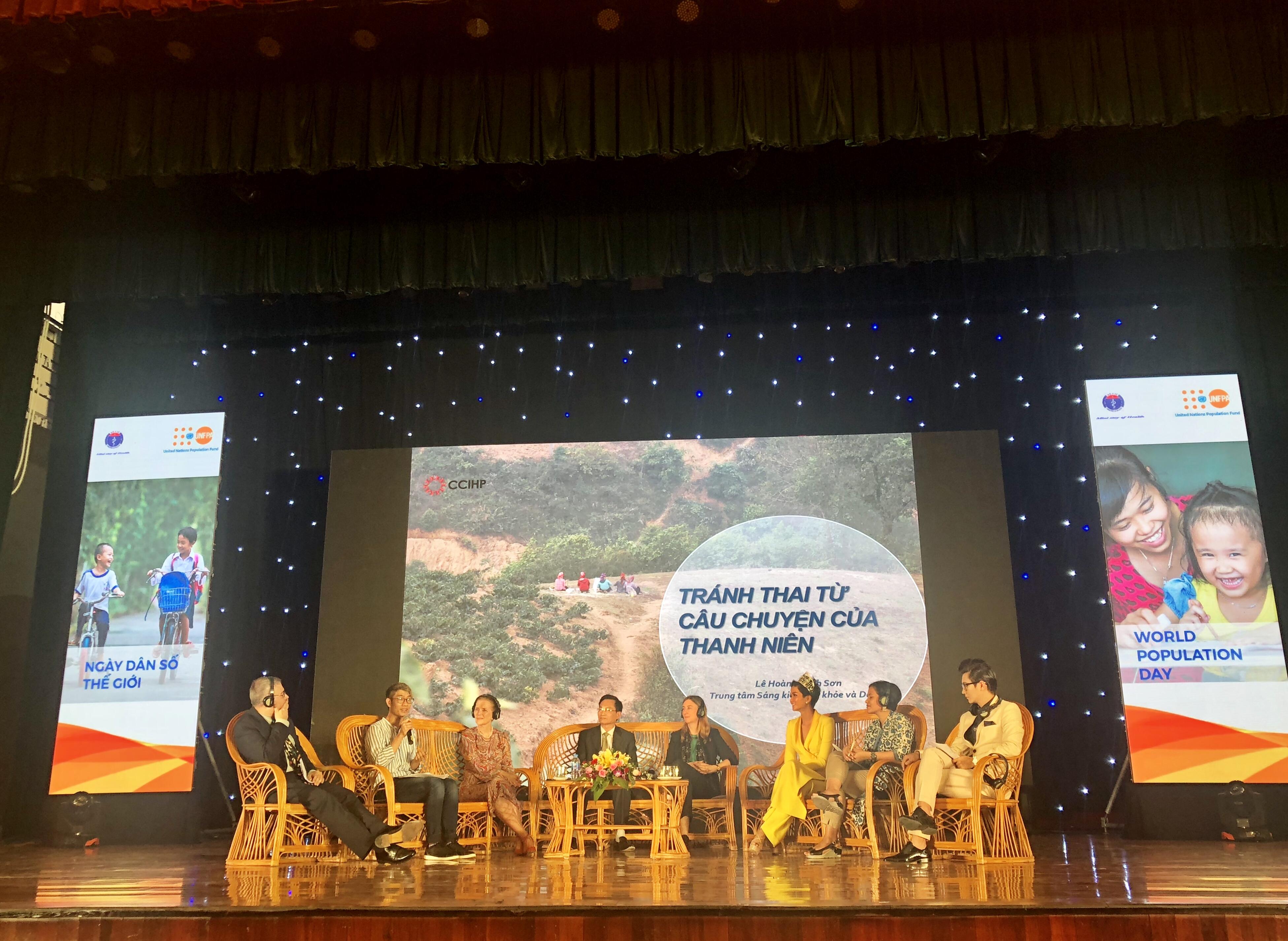Your Excellency Mr. Pham Le Tuan, Vice Minister of Health;
Mr. Le Canh Nhac, Standing Deputy General of GOPFP;
Mr. Vo Thanh Dong, Deputy General of GOPFP;
Ms. Nguyen Thi Ngoc Lan, Deputy General of GOPFP;
Representatives of line ministries, government organizations, embassies, donor agencies, international and local NGOs, youth representatives, the private sector, civil society organisations, the media and my fellow UN colleagues; ladies and gentlemen:
I am greatly honoured to be addressing you, on behalf of the United Nations Population Fund, UNFPA, Asia-Pacific Regional office and UNFPA in Viet Nam to commemorate the most important day in the UNFPA calendar. Let me at the outset thank the General Office for Population and Family Planning - GOPFP - for co-hosting and co-organizing today’s celebration.
World Population Day is celebrated across the world on 11 July to focus global attention to some of the most pressing population issues of our time. And today we mark World Population Day with the theme of "Family Planning is a Human Right".
Fifty years ago, on 13 May 1968, at the United Nations International Conference on Human Rights in Tehran, the world declared that “parents have a basic human right to determine freely and responsibly the number and the spacing of their children.”. This was the first time that family planning had expressly been described in this way. The Tehran Proclamation emphasized the importance of choice for every human being – including, of course, for women, at a time when women’s rights and gender equality were on the global agenda as never before.
Then, in 1994, came another landmark moment, with the International Conference on Population and Development in Cairo, Egypt – the ICPD as we call it. From the ICPD came a Programme of Action that not only reiterated family planning as a basic human right, but expanded on that by spelling out exactly what was contained under the wider umbrella of sexual and reproductive health and rights. The ICPD Programme of Action has been a key platform for the work that UNFPA does across the world today, in more than 150 countries and territories.
Now, since 2016, the Asia-Pacific region, including Viet Nam – along with the rest of the world – has embarked on the 2030 Agenda for Sustainable Development, underpinned by the 17 Sustainable Development Goals, or SDGs. The Agenda and its Goals seek to achieve a life of dignity for all, in order to truly leave no one behind. This includes the fulfillment of the Tehran Proclamation, the ICPD Programme of Action and all other instruments that have gone before which enshrine rights and choice – including the original Declaration of Human Rights that marks its 70th anniversary this year.
At UNFPA, we have embarked on a new Strategic Plan which supports the 2030 Agenda and strengthens our commitment to the ICPD Programme of Action.
Our Strategic Plan covers a lot of issues, but they can be broadly summarized under three Transformational Results for our region and our world:
- Zero maternal deaths;
- Zero unmet need for family planning; and
- Zero gender-based violence and harmful practices against women and girls.
Globally, some 214 million women in developing regions want to avoid or delay childbearing. Why, in this day and age, should they lack access to quality information, services and supplies, including modern contraception?
Among them are 6.3 million sexually active adolescent girls in Asia and the Pacific. Without fulfilling the rights of these precious young lives to access timely information and quality services, we will continue to have an estimated 3.6 million unsafe abortions among young women in our region every year.
Lack of information and services will have a profound impact on the health and lives of children, adolescents and adults, including fetal and neonatal deaths; cervical cancer; infertility; the risk of HIV; and physical, psychological and social consequences that can severely compromise the quality of life of those impacted.
Voluntary family planning is central to gender equality and women’s empowerment, and it is a key factor in reducing poverty. Achieving the world’s Sustainable Development Goals by 2030 will depend significantly on how well the sexual and reproductive health and rights of women and young people are fulfilled. Catering to their unmet need for family planning is among the most cost-effective investments overall.
UNFPA in Asia and the Pacific, including Viet Nam, is fully committed to supporting Governments to ensure that universal access to health, including sexual and reproductive health, will become a reality for all. But, we cannot do this alone. Governments, parliamentarians, the private sector and civil society must join forces to make it happen.
And we need young persons, including those of you here today to be involved strongly in this effort. We often hear that “young people are the future” – but how often do we truly involve young persons in helping shape their own futures?
This includes providing genuinely comprehensive sexuality education at a young age, serving as a foundation for sexual and reproductive health and reproductive rights – including family planning.
Together, by building partnerships between governments and civil society across Asia and the Pacific and globally, we can build a future where zero is the only acceptable number: zero maternal deaths, zero unmet demand for family planning, and zero violence and harmful practices against women and girls.
Investments in family planning today are investments in the health and well-being of millions of girls, women and young persons for generations to come.
Thank you, and wishing you all health, happiness and success this World Population Day – and always.


